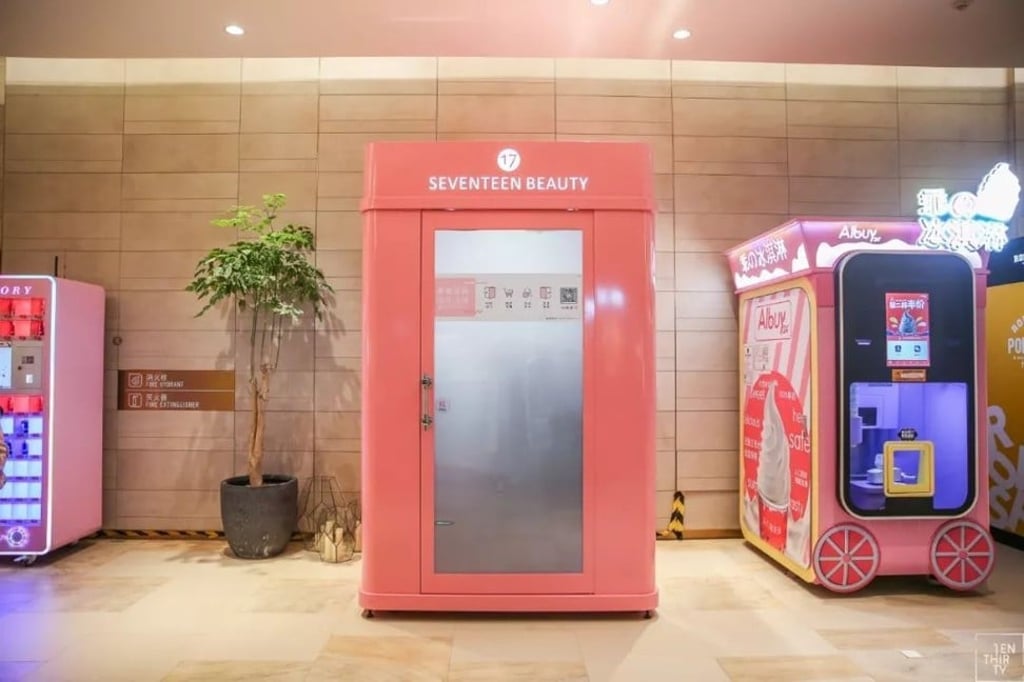China’s sharing economy now includes make-up, but hygiene doubts are hard to brush off
- Shareable make-up booths, where customers pay 28 yuan (US$4) for a 15-minute session, can now be found in shopping malls across the country
- But critics wonder how much bacteria is also being shared given the country’s uncivilised use of other shared products

After sharing bikes, portable chargers and karaoke rooms, China is taking the concept of the sharing economy one step further with shareable make-up.
Shareable make-up booths can now be found in shopping centres in Beijing, Shanghai, Guangzhou, Hangzhou and Wuhan under the name “17 Beauty Box”.
When a customer steps into the pink cubicle and scans a QR code on the wall, the transparent glass door behind them turns opaque and the glass cabinet in front of the mirror dramatically opens to reveal a collection of make-up products.
From Nars bronzers to Dior foundations, the products cover a wide range of brands, and together are worth around 4,000 yuan (US$600). Customers pay 28 yuan for a 15-minute session in the booth, or 58 yuan for 45 minutes if they need more time.

Disposable hygiene products are available for users if they want to make sure everything is clean before use.